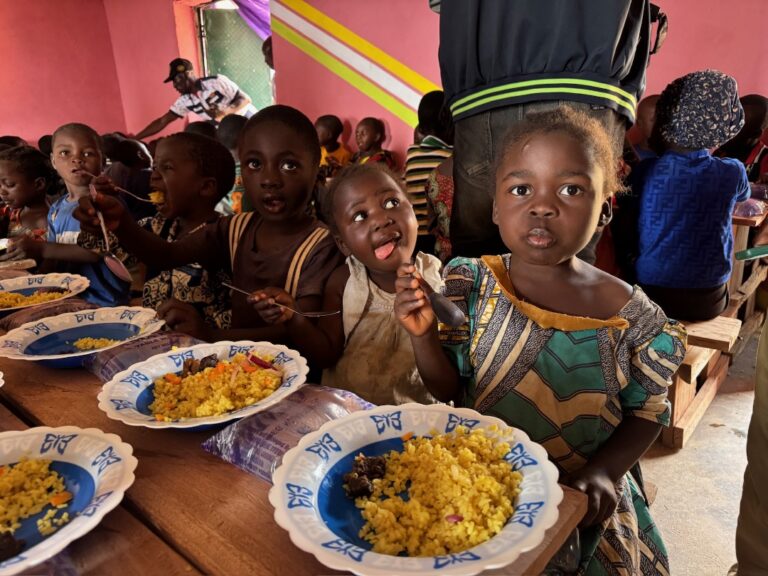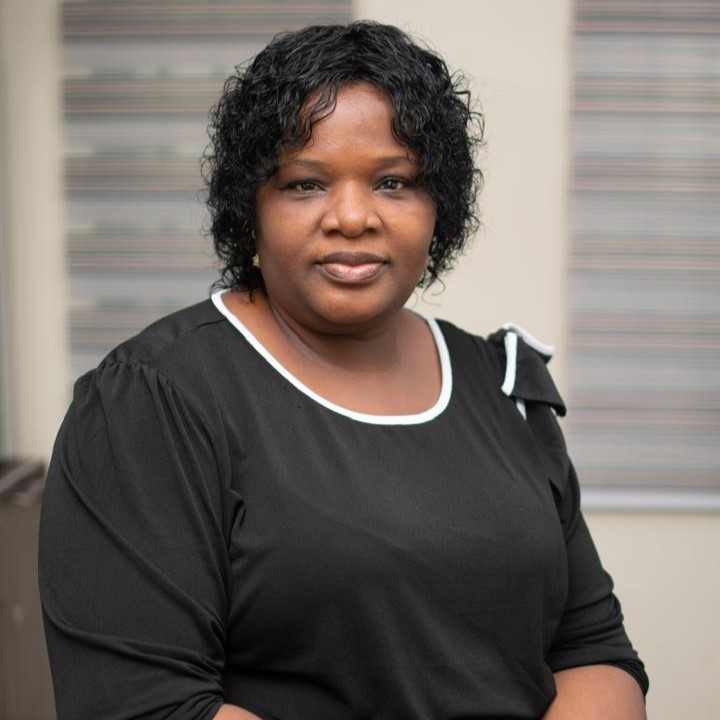Since its establishment in 2000, ActionAid Nigeria (AAN) has been at the forefront of advocating for human rights and social justice, transforming the lives of the poor and marginalised by addressing the root causes of poverty rather than handing out short-term aid. As it marks its 25th anniversary this week, DevReporting’s Christiana Akande-Alabi shares insights into its journey and stories of vision, courage, and a steadfast belief in the power of people to change their own lives:
Uduak Pius, 36, a mother of six, was yet to fully recover from the trauma of the death of her sister-in-law when she realised she was pregnant with her sixth child.
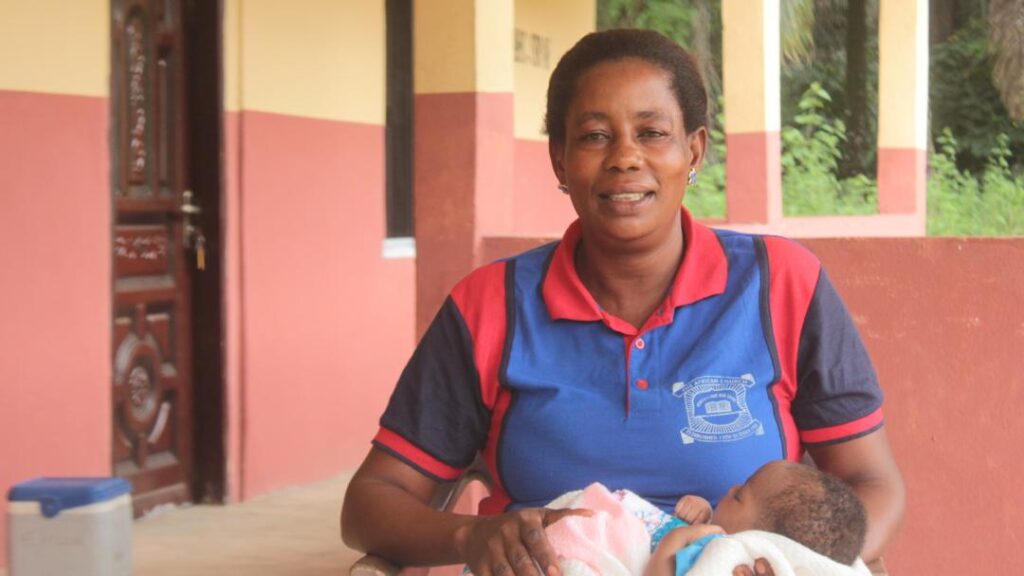
Identified simply as ‘Aunty,’ Mrs Pius’ sister-in-law was one of about 2,500 residents of Ikot Unya village in Mkpat Enin Local Government Area of Akwa Ibom State, South-southern Nigeria.
The community had no healthcare centre, and the residents had been used to herbalists taking care of their ailments, while traditional birth attendants were solely responsible for pregnant women.
According to Mrs Pius, pregnant women are registered by the traditional birth attendants with the sum of N2,500 and a bottle of local gin. This, she said, Aunty already did before she was enrolled for antenatal care at a traditional birth attendant home in the village. However, she was in labour for more than six hours without success.
“Complications soon set in, and there was nowhere near to refer her to because it was in the middle of the night. When she was eventually delivered of the baby, Aunty could not survive it. She died right at the birth attendant’s home,” Mrs Pius sorrowfully recalled.
So, when she realised she was pregnant some months after Aunty’s death, Mrs Pius had her heart in her mouth, feeling dejected.
Meanwhile, this was the same time ActionAid Nigeria had commenced the construction of a health centre in her community through its “Local Rights Programme,” giving power to people in the most vulnerable and hard to reach communities by empowering them with essential skills and capacities to make demands by engaging political and institutional power structures in their communities and the State.
And before Mrs Pius was due for delivery, the new health centre, implemented via ActionAid’s partnership with local organisations, was already in use.
Beaming with smiles, Mrs Pius pointed at her six-week-old child and said: “This child was born here; she is lucky, and we didn’t spend money as we used to spend so much money at the local birth attendant place.”
She thanked AAN for bringing smiles to the faces of the community’s people, noting that the facility offers free healthcare service, unlike the traditional birth attendants.
According to Suwaiba Muhammad-Dankabo, Director of Programmes for ActionAid Nigeria, Ikot Unya was one of 14 communities scattered across four local government areas of Akwa-Ibom State where the organisation offered similar infrastructural projects to address critical issues.
The story is the same across many states of the federation, including Kwara, Kebbi, and Ondo.
Like Ikot Unya, like Bolorunduro
Babatunde Olasoji, was a weapon instructor at the Nigerian Defence Academy in Kaduna, Kaduna State, North-west Nigeria. He is now the traditional ruler in Bolorunduro, a nascent community in Ondo North Local Government Area of Ondo State.

According to the monarch, Bolorunduro connects about 15 other villages, and Mr Olasoji oversees them all.
Though not too distant from Akure, Ondo State capital, Bolorunduro and the adjoining villages lack basic amenities, particularly schools.
The monarch had told ActionAid Nigeria that once their children finished primary school education within the neighbourhood, they would have to travel more than 70 kilometres to access secondary education in Aiyede-Ogbese. This development, the monarch said, discouraged many from pursuing secondary education.
Mr. Olasoji said since ActionAid Nigeria established a secondary school in the community, life instantly became easier, with parents worrying less about the care of their wards whenever they left for school.
“Before they established the school for us, there were cases of children travelling the long distances on motorcycles, and we have had cases where some of them got knocked down by vehicles,” the traditional ruler said, adding that apart from the school provided, the organisation also empowered the community’s youth with relevant skills to help them beat poverty.
Nusaiba Suleiman makes history
Nusaiba Suleiman is one of the nine girl children in Raishe community in Ngaski Local Government Area of Kebbi State, who were supported by ActionAid Nigeria to go to school. With the provision of school materials such as school bags, uniforms, pairs of sandals, and writing materials, Ms Nusaiba was encouraged to complete secondary education and became the first girl in the community to proceed to a tertiary institution, as she later gained admission to the state’s College of Health Science and Technology.
Numerous stories like these have continued to dot the record books of ActionAid Nigeria within the last 25 years of its existence.
How the journey started
Back in 1972, when Cecil Jackson-Cole, an English businessman and philanthropist, established a charity in the United Kingdom named Action in Distress, only a few could have imagined the global reach it would achieve.
Initially, it sought to sponsor children in India and Kenya, providing books and uniforms to enable access to education, a tool Mr Jackson-Cole believed could lift individuals and communities out of poverty. By the time the organisation rebranded as ActionAid in 1979, it had sponsored roughly 40,000 children across Africa and Asia.
Over time, ActionAid expanded beyond child sponsorship, delivering humanitarian aid, medication, and food to communities affected by disasters and conflict. It soon became evident that addressing poverty’s symptoms was insufficient and that the focus needed to shift to its root causes.
This strategic shift deepened under Salil Shetty, who became the Chief Executive Officer in 1998 and redirected ActionAid’s mission from poverty alleviation to poverty eradication, championing citizen engagement and civil society collaboration
For Nigeria, this moment coincided with the country’s historic return to democracy in 1999. It presented a rare opportunity for international development organisations to establish or expand operations, and ActionAid seized it. Charles Abani, a seasoned practitioner with Voluntary Service Overseas (VSO), was tasked with establishing ActionAid Nigeria with a challenge to build a credible presence capable of mobilising communities, donors, and government partners.
…and the journey commenced
Arriving in Nigeria with only £500 and a laptop, Mr Abani’s vision was clear – poverty eradication would require strategy, partnership, and empowerment, not charity alone. And within months, he and his first local staff, Goodluck Omoh, had charted a path to follow.
By 2004, under Mr Abani’s leadership, ActionAid Nigeria had grown its seed fund of £500 into over £4 million through institutional donors such as the European Union, DFID, USAID, and the World Bank.
With programmes in education and health initiated, coalitions such as Civil Society Action Coalition on Education for All (CSACEFA) and Civil Society Consultative Group on HIV/AIDS in Nigeria (CiSGHAN) emerged as vital partners in advocacy and intervention towards tackling systemic barriers to education and healthcare.
Pioneering leadership
Leadership has remained a defining element of AAN’s identity. As the organisation evolved, so did the individuals who held or still holding the mantle as Country Director. From Charles Abani to Otive Igbuzor, Hussaini Abdu, Ojobo Atuluku, Ene Obi, and now Andrew Mamedu.
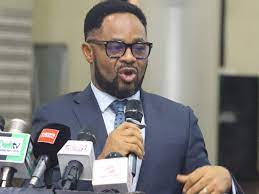
Each leadership era has strengthened the organisation’s strategic direction, expanded its institutional funding, and nurtured staff capacity. What began with a predominantly service-delivery model gradually transformed into a bold Human Rights-Based Approach and has continued to mature into the deeply feminist, people-centred, movement-oriented, and collaborative ethos that define ActionAid Nigeria today.
ALSO READ: Nigerian Minister, JAMB Registrar, NECO Boss, others to discuss examination integrity at EWAN summit
The incumbent leader of the team, Mr Mamedu, now leverages decades of experience within the organisation to focus on expanding the board, growing financial resources, strengthening systems, and deepening government engagement, ensuring that the quarter-century-old organisation continues to flourish in its mission of making poverty a forgotten malaise.
Building a people-centred engine
ActionAid Nigeria’s success stories have been underpinned by its meticulous planning and participatory approach. Central to this is the Country Strategic Paper (CSP), a roadmap produced every five years, outlining strategic priorities, expected outcomes, implementation methods, partners, risk mitigation, and financial projections.
Developed through extensive consultations with staff, local communities, civil society organisations, donors, and ActionAid International affiliates, the CSP ensures programmes are tailored to the needs of the people they aim to serve. Past CSPs have addressed education, women’s rights, governance, health, and livelihoods, evolving alongside Nigeria’s socio-economic landscape.

From budget literacy among women farmers in Yobe State to HIV/AIDS awareness campaigns across Benue and Cross River, AAN’s interventions have consistently empowered communities to claim their rights and hold authorities accountable.
The organisation’s participatory methods, including the Regenerated Freirian Literacy through Empowerment and Community Techniques (REFLECT) approach, enable every stakeholder to have a voice, fostering genuine ownership and long-term change. Whether it is women demanding accountability for agricultural project funds or young people engaging in governance processes, ActionAid Nigeria has cultivated citizens who act with knowledge, confidence, and purpose.
Tangible transformation
ActionAid Nigeria’s interventions have left an indelible mark. It’s education initiatives were informed by global developments such as the World Education Forum in Dakar (2000) and the adoption of Millennium Development Goal 2 (Universal Primary Education).
With these frameworks and through the creation of CSACEFA, AAN launched the Commonwealth Education Fund (CEF), funded by the UKAid. CSACEFA gathered civil society organisations working in education, ensuring high-quality programme design and implementation.
For health, AAN once focused on HIV/AIDS, recognising Africa as the epicentre with millions silently affected. Working with governments, communities, and people living with HIV/AIDS, the organisation implemented prevention, treatment, and behaviour-change initiatives.
Initial partnerships included the Civil Society Group for HIV/AIDS in Nigeria (CiSGHAN, later CiSHAN), Society for Family Health (SFH), Family Health International (FHI360), and Voluntary Services Overseas, leading to the Promoting Sexual Reproductive Health and HIV/AIDS Reduction in Nigeria (PSRHH) programme, funded by DFID.
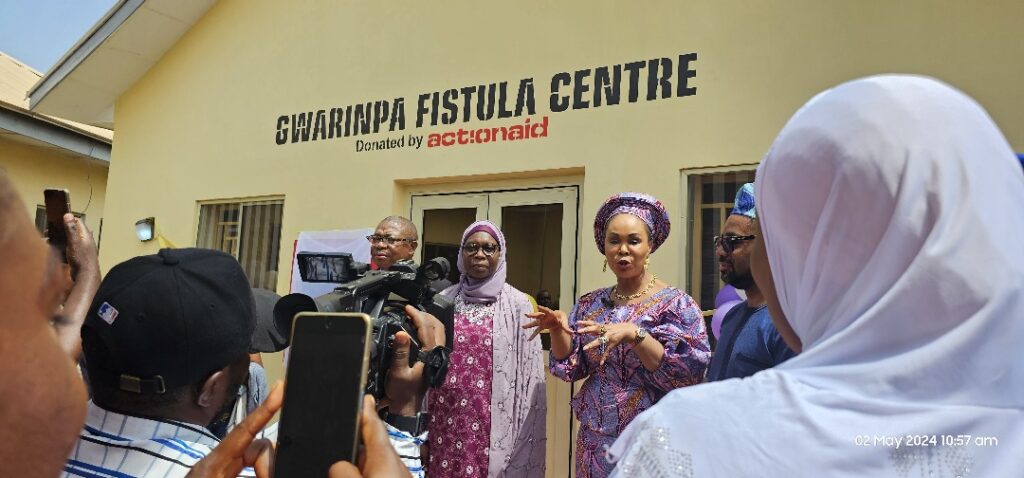
Whether in health, education, agriculture, commerce, or human rights, AAN has mobilised people to achieve the best results. Through its Strengthening Nigeria’s Response to HIV/AIDS; Strengthening Citizens’ Resistance Against Corruption (SCRAP-C); STAR Circles; Poor Education Plus; Family Life and HIV Education; Commonwealth Education Fund (CEF); and the Citizens’ Led Engagements on Judicial Accountability in Post-Election Justice Delivery in Nigeria (CLEAP JUSTICE), which birthed the Independent Judicial Accountability Panel (IJAP) under the chairmanship of retired Justice Mojeed Owoade JCA (rtd), as well as the reputable Women’s Voices and Leadership (WVL) project, arguably the biggest women’s rights project in Nigeria during its time, among many others, lives have been touched through enrollment and retention in schools and through efforts to curb maternal and child mortality.
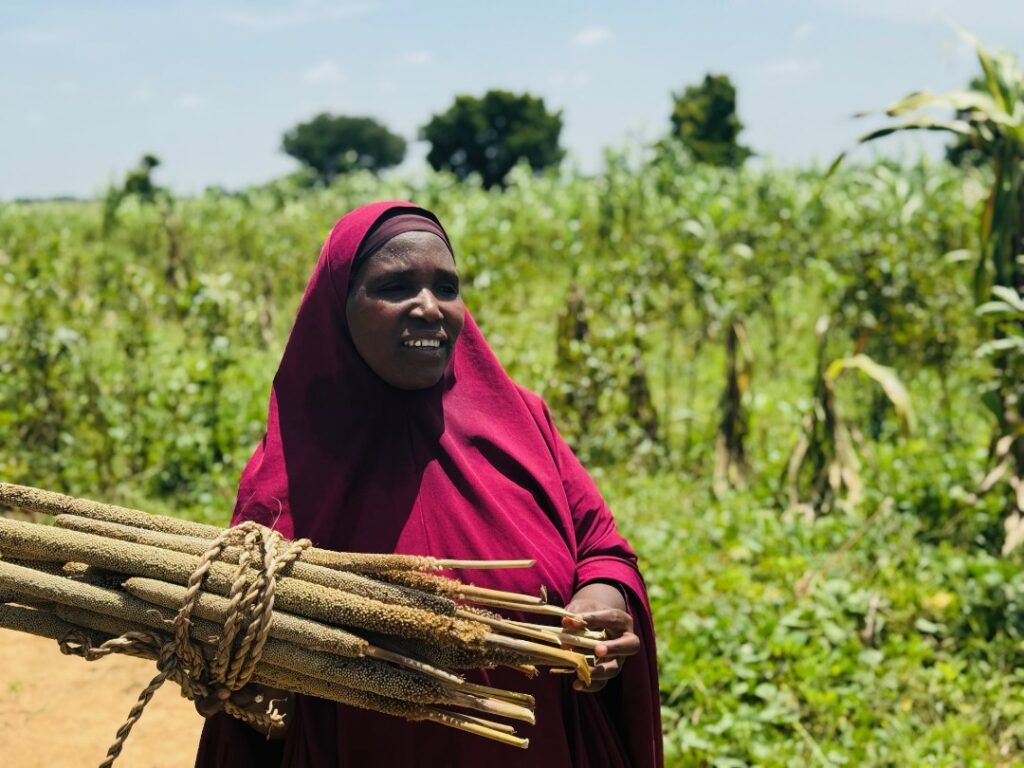
What defines each leader’s era
According to its Director, Business Development and Innovation, Nkechi Ilochi-Kanny, the journey of ActionAid Nigeria is best understood through the conviction of its leaders and the passion of its people, a sentiment, she said, is echoed by staff and partners across the nation.
She said Mr Abani, as the pioneer Country Director, laid the organisation’s foundation with an entrepreneurial spirit and “an unshakable belief that eradicating poverty in Nigeria was achievable while Hussaini Abdu strengthened the organisation’s leadership structure, expanded its resources, and positioned AAN for large-scale impact.”
“It was under Dr Abdul’s leadership that AAN achieved a historic milestone- the launch of the Community Sponsorship Programme, arguably the first structured individual giving model by any INGO or NGO in Nigeria, designed not merely to raise funds but to inspire the principle of Nigerians for Nigerians,” she said.
Ms Ilochi-Kanny said on her part, Ms Obi embodied the mission with the intensity of a firebrand activist, blending a nurturing managerial presence with uncompromising accountability.
“Her famous line, ‘I will hug you, we will cry together, and I will still fire you,’ defined her stance on AAN’s unforgivable sins: sexual harassment, exploitation and abuse, fraud, and child abuse. Although she was widely recognised for her activism in election observation and labour rights, her successor, Dr Mamedu, has distinguished himself through a relentless commitment to accountability,” the director said.
She said Mr Mamedu has consistently positioned ActionAid Nigeria as a strong voice urging citizens to hold the government to account and reminding the government of its responsibility to be transparent, responsive, and people-centred.
“Within the organisation, he is fondly regarded as the Agile CD because of his hands-on leadership style, quick responsiveness, and insistence on operational excellence. He has also championed the formation of MOTION, the largest movement of movements in Nigeria, created to amplify citizen voices and demand meaningful governance reforms,” she added.
Ms Ilochi-Kanny said the organisation’s commitment to staff welfare has been a defining part of its legacy, noting that since 2004, AAN has maintained a crèche for lactating mothers, open until a child turns 18 months, alongside extended maternity leave, flexible work hours for new mothers, and the introduction of paternity leave.
“This collective dedication to social justice, accountability, and a supportive internal culture has nurtured the enduring ethos of once an ActionAider, always an ActionAider, which cements its legacy built by generations of lovers and fighters for the poor and excluded,” she said.
Looking ahead
As ActionAid Nigeria looks ahead to its next chapter, it carries with it a legacy built on vision, resilience, and a steadfast belief that poverty is neither inevitable nor permanent. The seeds sown in 1999 have grown into a robust institution, nurturing hope, opportunity, and empowerment for millions of Nigerians.

